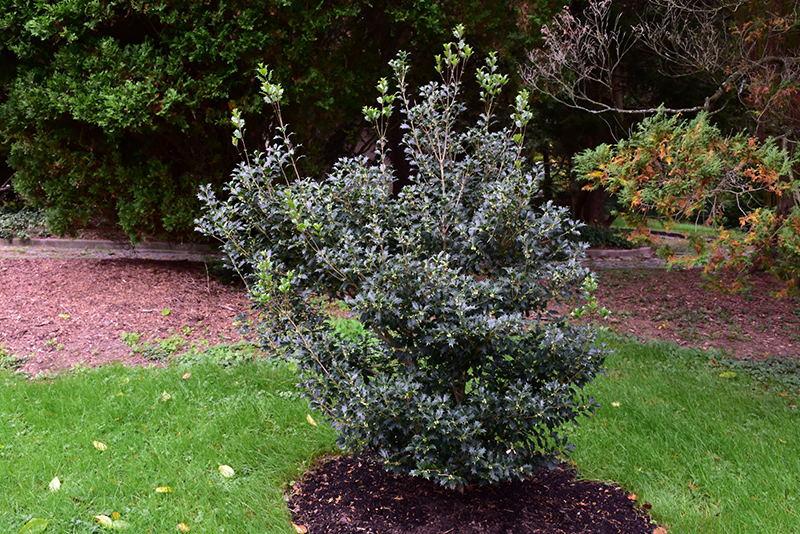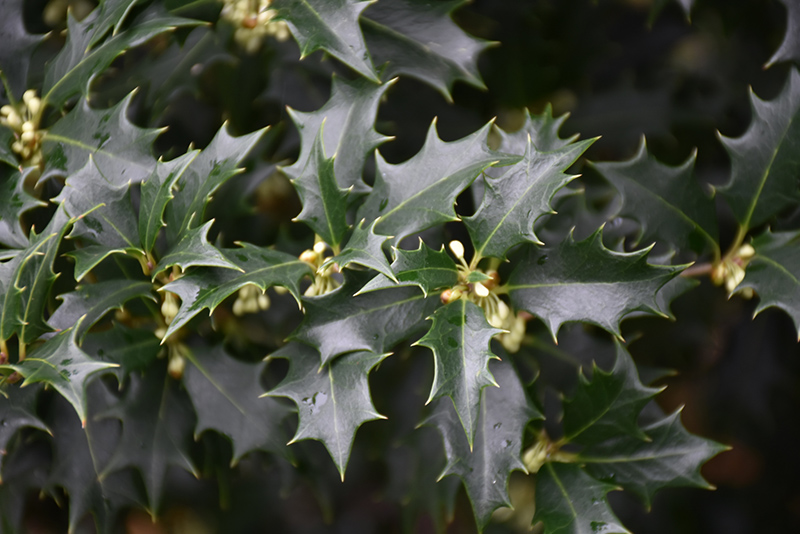Plant Search & Info
Height: 12 feet Spread: 10 feet
Sunlight:
Hardiness Zone: 6a Other Names: Tea Olive, Olive Holly, Holly-Leaf Osmanthus Description: To the untrained eye, this looks like a holly with its incredibly spiny lustrous leaves, but it's actually related to lilac and privet; flowers may not be showy but are extremely fragrant, blooming in fall; more adaptable than holly Ornamental Features False Holly has attractive dark green evergreen foliage on a plant with an oval habit of growth. The spiny pointy leaves are highly ornamental and remain dark green throughout the winter. It features subtle fragrant white flowers along the branches in mid fall. The smooth khaki (brownish-green) bark is extremely showy and adds significant winter interest. Landscape Attributes False Holly is a dense multi-stemmed evergreen shrub with a shapely oval form. Its average texture blends into the landscape, but can be balanced by one or two finer or coarser trees or shrubs for an effective composition. This is a relatively low maintenance shrub, and is best pruned in late winter once the threat of extreme cold has passed. Gardeners should be aware of the following characteristic(s) that may warrant special consideration; False Holly is recommended for the following landscape applications; Planting & Growing False Holly will grow to be about 12 feet tall at maturity, with a spread of 10 feet. It has a low canopy, and is suitable for planting under power lines. It grows at a slow rate, and under ideal conditions can be expected to live for 40 years or more. This shrub does best in full sun to partial shade. It prefers to grow in average to moist conditions, and shouldn't be allowed to dry out. It is not particular as to soil type or pH. It is highly tolerant of urban pollution and will even thrive in inner city environments. This species is not originally from North America.![]()
![]()
![]()
![]()
![]()
![]()
![]()
![]()
![]()
![]()
![]()
![]()
![]()



